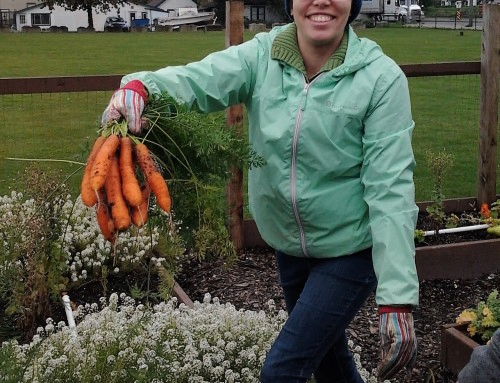Yes, I’d like to think of Cover Crops acting as a winter blanket for the soil. While normally parts of your garden beds lie bare or with dead plant material throughout the fall and winter, you can protect and replenish it by growing a grain or legume. Cover crops are inexpensive and are effective as animal manure in producing humus, increasing your soil’s fertility and structure.

For Fava Beans, you could also eat their early sprouted leaves! Just don’t pick off the whole plant and leave the new side buds to grow more leaves.
Eight reasons to grow cover crops:
- To protect bare soil from being washed or blown away.
- To keep nutrients from being washed out of your soil and to add even more when using our *nitrogen fixers.
- To loosen the soil deeper than you can or would want to dig.
- To increase organic matter, improve soil structure, drainage, and aeration.
- To control weeds.
- To help beneficial insects and microorganisms overwinter.
- To increase yields and break pest and disease cycles.
- To grow your own mulch and compost material.
*Nitrogen is a plant macronutrient- it is a part of all living cells and is a necessary part of all proteins, enzymes and metabolic processes involved in the synthesis and transfer of energy. Helps plants with rapid growth, increasing seed and fruit production and improving the quality of leaf and forage crops.
HOW: Legume and grain seeds grown as ‘green manure’. Grow at end of season and dig up next spring, leave on soil to decompose as green mulch. Examples: Peas, Fava, Rye, Barley, Clover
Allow 2-4 weeks to decompose before planting your first crops next year in your garden bed. You are ‘building’ your soil over winter, ready for growth in the spring!
Example: Sowing Clover – March to Mid-October, Sprinkle & rake in to top of soil, lightly covered with soil is ok. Harvest next April or before seed heads mature (or you will have weeds!)
A central concept of organic gardening is the notion of feeding the soil. Literally adding organic matter to the soil to provide food for the organisms that live in the soil. They break down organic matter and minerals (and other elements) into forms that our crops are able to take up as nutrients.
Adapted from West Coast Seeds ‘How-to’ Guide from
http://www.westcoastseeds.com/how-to-grow/Vegetable-Seeds/Cover-Crops/
http://www.westcoastseeds.com/topicdetail/topic/green-manure-cover-crops/






